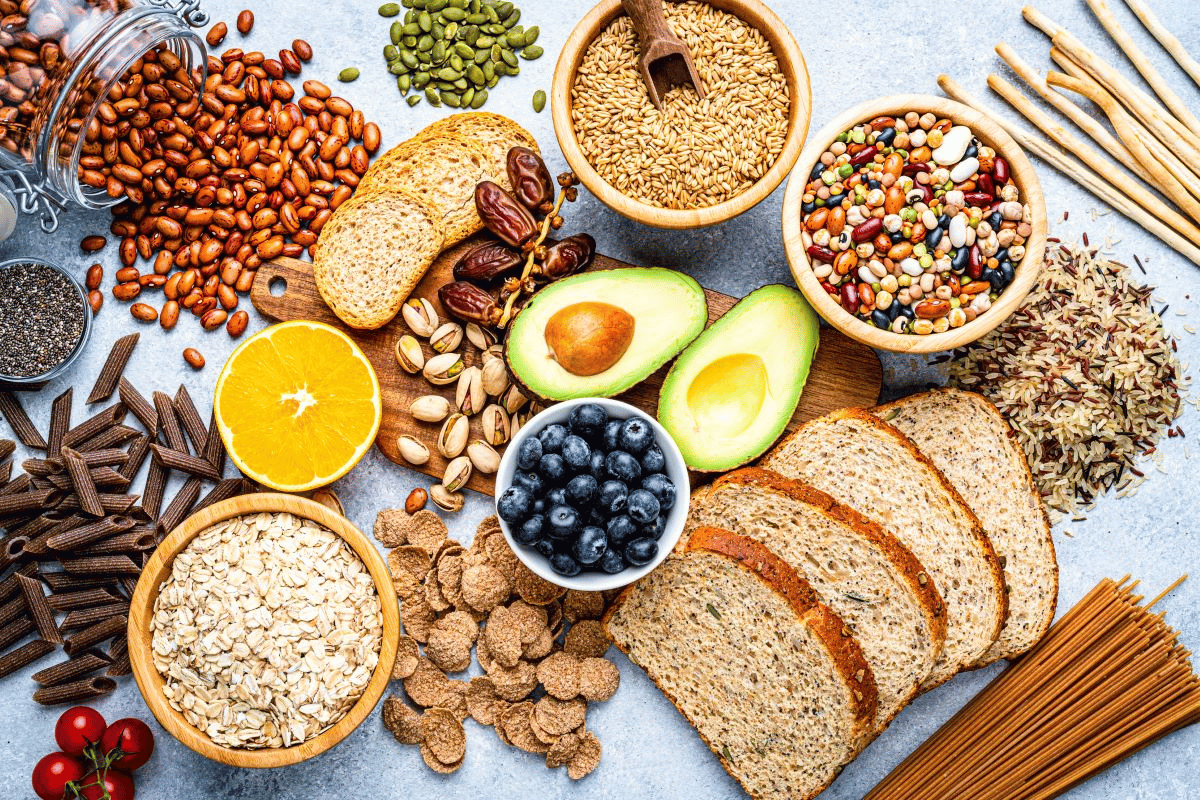How to Lose Weight Without Exercise: 4 Practical Tips
While traditional exercise remains a cornerstone of many weight loss plans, not everyone can or wants to rely on physical activity alone. Some face limitations due to health conditions, injuries, or busy schedules. Others may find exercise intimidating or challenging to maintain over time. This is where alternative approaches to weight management come into play.
Even without hitting the gym, small lifestyle adjustments can lead to significant and lasting results. By focusing on diet, stress management, and sleep quality, individuals can improve their overall health and shed excess pounds sustainably. The key is making informed choices that align with personal preferences and capabilities.

Tip #1: Adjust Your Diet for Fewer Calories
One of the most effective ways to lose weight without exercise is by adjusting your diet to reduce calorie intake. This does not mean drastic dieting or depriving yourself, but rather making mindful, sustainable changes to your eating habits.
Portion control plays a vital role in reducing your overall calorie consumption. By simply cutting down on portion sizes, you can prevent overeating while still enjoying the foods you love. Eating smaller, more frequent meals throughout the day can also help keep your metabolism active without overwhelming your body with excess calories.
Mindful eating is another powerful technique. Paying attention to how and when you eat, as well as listening to your body’s hunger and fullness cues, can help prevent emotional or mindless eating. It allows you to focus on the quality of the food, not just the quantity, which can lead to a more balanced calorie intake.
Instead of focusing on calorie-dense, low-nutrient foods, prioritize nutrient-dense options. These are foods that provide more vitamins, minerals, and fiber for fewer calories. Examples include leafy greens, fruits like berries, lean proteins such as chicken and fish, and whole grains like quinoa and brown rice. These foods help keep you fuller for longer, reducing the chances of overeating later.
By making these simple changes to your eating habits, you can effectively cut calories and still nourish your body with the essential nutrients it needs. With consistency, these adjustments can lead to gradual and sustainable weight loss without the need for exercise.
Tip #2: Prioritize Protein and Fiber-Rich Foods
When it comes to losing weight without exercise, protein, and fiber play crucial roles in helping you feel full, satisfied, and less likely to overeat. Both nutrients are essential for curbing hunger and maintaining a balanced, healthy diet.
Protein is a key macronutrient that not only supports muscle growth and repair but also promotes satiety. Including adequate amounts of protein in your meals helps regulate appetite and reduces cravings throughout the day. Studies have shown that consuming protein-rich foods can enhance feelings of fullness and reduce overall calorie intake. Excellent sources of protein include lean meats like chicken and turkey, fish, eggs, legumes, and plant-based options like tofu and quinoa.
In addition to protein, fiber is another powerhouse nutrient for weight management. Fiber slows down digestion, helping you feel full for longer periods. High-fiber foods also stabilize blood sugar levels, reducing hunger pangs and energy crashes. Incorporating more fiber into your diet can help prevent overeating by promoting a sense of fullness without adding extra calories. Some of the best fiber-rich foods include vegetables (especially leafy greens), fruits like apples and pears, whole grains, legumes, and seeds such as chia and flax.
By prioritizing these nutrient-dense, hunger-satisfying foods, you can effectively manage your weight without the need for exercise. Protein and fiber not only curb appetite but also support overall health, making them essential components of a sustainable weight loss strategy.
Tip #3: Reduce Sugary Drinks and Empty Calories
One of the easiest ways to reduce calorie intake without making drastic changes to your diet is by cutting back on sugary drinks and empty calories. These liquid calories, often found in sodas, sweetened beverages, and certain snacks, can significantly contribute to weight gain without offering any nutritional benefits.
Sugary drinks, such as soda, fruit juices, and sweetened teas, are packed with high amounts of sugar and offer little to no nutritional value. Despite their calorie content, they don’t make you feel full, and the body often processes them quickly, leading to spikes and crashes in blood sugar levels. This can leave you feeling hungry sooner, prompting you to consume more food throughout the day.
Switching to healthier alternatives can make a big difference in your calorie consumption. Opt for water, herbal teas, or sparkling water with a splash of lemon or lime for flavor. These drinks hydrate the body without adding unnecessary calories. If you crave something sweet, consider substituting sugary drinks with low-calorie flavored water or infused water with fruits like cucumber or berries.
In addition to beverages, be mindful of empty calories found in processed snacks like chips, cookies, and sugary desserts. These foods are typically high in unhealthy fats and sugars but low in essential nutrients, leading to overeating and poor weight management. Instead, swap these snacks for nutrient-dense alternatives like fresh fruit, nuts, or yogurt, which provide satisfying energy without the added sugar and fats.
By reducing sugary drinks and empty-calorie foods, you can lower your overall calorie intake and help regulate your weight without relying on exercise. Small, mindful swaps like these make it easier to maintain a balanced, healthy diet and support your weight loss goals.

Tip #4: Improve Sleep and Stress Management
While adjusting your diet is essential for weight loss, sleep, and stress management are equally important factors that often go overlooked. Poor sleep quality and high-stress levels can have a significant impact on your ability to lose weight and maintain a healthy body.
Lack of sleep can disrupt the balance of hunger hormones in the body, specifically ghrelin (which stimulates appetite) and leptin (which signals fullness). When you don’t get enough rest, ghrelin levels rise, making you feel hungrier, while leptin levels drop, making it harder to feel satisfied after meals. As a result, you’re more likely to overeat, particularly high-calorie, comfort foods. Research has shown that people who consistently get insufficient sleep tend to gain weight over time, as their bodies struggle to regulate appetite and metabolism.
Improving your sleep hygiene is key to managing weight more effectively. Aim for 7 to 9 hours of quality sleep each night. Establish a consistent sleep schedule, avoid electronic devices before bed, and create a relaxing bedtime routine to help signal to your body that it’s time to wind down. A well-rested body is more capable of regulating hormones and maintaining a healthy weight.
Stress is another major contributor to weight gain and difficulty losing weight. When you’re stressed, your body releases cortisol, a hormone that triggers cravings for unhealthy foods, particularly those high in sugar and fat. Chronic stress can also lead to emotional eating, where food is used as a coping mechanism. To manage stress effectively, incorporate relaxation techniques such as mindfulness, meditation, deep breathing, and yoga into your daily routine. Regular physical activities, even gentle ones like walking, can also help reduce stress levels.
By improving both sleep quality and stress management, you create a balanced foundation that supports healthy weight management. These lifestyle changes help reduce overeating, curb cravings, and allow your body to function optimally, all of which contribute to losing weight without the need for exercise.
Conclusion:
In conclusion, losing weight without exercise is entirely achievable by adopting a holistic approach to diet and lifestyle. By making simple, sustainable changes such as adjusting your diet to reduce calories, prioritizing protein and fiber-rich foods, cutting out sugary drinks and empty calories, and improving sleep and stress management, you can create a weight loss strategy that doesn’t require intense physical workouts.
These practical tips focus on nourishing your body, managing cravings, and supporting your overall well-being, making it easier to maintain a healthy weight over the long term. Consistency in applying these habits will not only help you shed pounds but also enhance your quality of life by promoting better health and wellness.
Lose Weight Without Exercise
FAQ:
FAQ 1: Can I lose weight without exercising?
Yes, it is possible to lose weight without exercising by making smart dietary and lifestyle changes. Focusing on portion control, mindful eating, and prioritizing nutrient-dense foods like protein and fiber-rich options can help you reduce calorie intake and manage hunger. Additionally, improving sleep and managing stress can significantly impact your weight loss efforts. While exercise has its benefits, these lifestyle adjustments can still lead to sustainable weight loss.
FAQ 2: How can adjusting my diet help with weight loss without exercise?
Adjusting your diet plays a key role in reducing calorie intake. By practicing portion control and mindful eating, you can prevent overeating while still enjoying your favorite foods. Incorporating more nutrient-dense foods—such as lean proteins, fruits, vegetables, and whole grains—will help you feel full longer without consuming excessive calories. These dietary changes, combined with reducing sugary drinks and processed snacks, can support weight loss without the need for exercise.
FAQ 3: Why is protein and fiber important for weight loss?
Protein and fiber are essential nutrients for weight management. Protein helps you feel satisfied for longer periods, reducing the likelihood of overeating. It also helps preserve lean muscle mass while promoting fat loss. Fiber, on the other hand, slows down digestion and stabilizes blood sugar, curbing hunger and preventing energy crashes. Both nutrients support healthy weight loss by promoting fullness and reducing the tendency to overeat.
FAQ 4: How do sugary drinks and empty calories affect weight loss?
Sugary drinks, like soda and sweetened juices, are high in calories but provide little nutritional value. They can cause blood sugar spikes and crashes, leaving you feeling hungry sooner and leading to overeating. Similarly, processed snacks high in sugar and unhealthy fats—known as empty calories—offer no significant health benefits and can easily contribute to weight gain. Reducing or eliminating these items from your diet can lower your overall calorie intake, making weight loss more achievable without exercise.
FAQ 5: How do sleep and stress impact weight loss?
Poor sleep and high-stress levels can hinder weight loss efforts. Lack of sleep disrupts hunger-regulating hormones, causing increased hunger and cravings for unhealthy foods. Stress, on the other hand, triggers the release of cortisol, a hormone that can lead to emotional eating and cravings for comfort foods high in sugar and fat. By improving your sleep habits and managing stress through relaxation techniques, you can create a more favorable environment for weight loss and healthier eating habits.
Leave a Reply